Political and legal risks
{GRI SO5}
Political and legal risks are considered to be among the greatest challenges faced by companies in the oil industry. The passing and functioning of enforceable and effective laws, particularly where new business legislation is drafted not only at the national but also at the EU level, is of great importance to the entire sector.
The year 2013 was a busy one for Polish lawmakers working on regulations with direct or indirect implications for the oil sector. Their work was driven by the need to implement the enacted EU directives into the national law, recognise plans for new EU regulations, and align the Polish legal framework with the new operating conditions of the Polish oil industry (including in the upstream segment). Although a lot has already been done, risks stemming from laws and government policies for the oil sector remain real. These include:
- Insufficient number of comprehensive regulatory frameworks and inconsistent law − the Polish oil sector is regulated under multiple legal acts, compliance with which is overseen by different ministries, and this hampers the industry's smooth functioning.
- Delays in the implementation of EU directives and protracted law-making processes − despite the immense effort of the Polish administration, a number of EU directives still remain to be incorporated into national law. Moreover, many areas are under-regulated and the legislative process is lengthy. Since the regulator is not inclined to share clear outlines of planned laws, the regulatory framework is a source of considerable uncertainty or significant consequences, often forcing Polish oil industry players to incur excessive costs.
- The Polish voice remains largely unheard in the EU arena − even though members of the government administration meet with representatives of the oil industry to discuss draft EU legislation, in many cases the Polish voice has gone unheard. This stems from, among other things, insufficient dialogue maintained with other countries to work out a common position and promote certain views and initiatives. The Polish administration should find ways to support not only local, but also international groups whose business goals converge with Poland's national interests. As the interests of individual EU member states vary, the adopted legislation does not always correspond with the needs and expectations of the Polish refiners.
Risks and opportunities related to national and EU regulations, which were the focus of attention in 2013 and which will have a bearing on the oil industry's operations in 2014.
Regulations on mandatory stocks
The drafting of amendments to the Act on Stocks of Crude Oil, Petroleum Products and Natural Gas, and on the Rules to be Followed in the Event of Threat to National Fuel Security or Disruptions on the Petroleum Market of February 16th 2007, was completed in 2013. The primary purpose of the amendments is to implement Council Directive 2009/119/EC imposing an obligation on Member States to maintain minimum stocks of crude oil and/or petroleum products.
The draft amendment to the Act prepared by the Polish government puts in place measures beneficial to producers and importers of fuels such as a mechanism enabling companies to gradually reduce their mandatory stocks (by a total of approximately 30% by the end of 2017) in exchange for a stock charge, to be paid by the companies on a monthly basis. By reducing the volume of mandatory stocks:
- an immense amount of funds tied up in the stocks will be released,
- the companies' balance sheets will improve,
- valuations of the companies' assets will be less affected by market price fluctuations, and
- the logistics costs and administrative expenses of holding mandatory stocks will decrease.
All these factors combined should have the effect of enhancing the competitiveness of Polish oil companies in global markets. The amendments also introduce long-awaited non-discriminatory rules for building and maintaining mandatory stocks, applicable to all producers and importers of crude oil and petroleum products operating in the Polish market.
Regulations on hydrocarbon exploration and production
Regulations on hydrocarbon exploration and production provided an important focus for Grupa LOTOS in 2013.
Work on regulations governing upstream operations in Poland was accelerated by the required implementation of Directive 2009/31/EC of the European Parliament and of the Council of April 23rd 2009 on the geological storage of carbon dioxide, as well as the Polish government's increased interest in developing the unconventional gas industry.
The drafting of amendments to the Geological and Mining Law consisted of two parallel processes to enable faster implementation of the Directive mentioned above and to adjust the law to cover unconventional hydrocarbon exploration.
Directive on carbon dioxide storage demonstration projects was implemented into Polish law by an act of September 27th 2013, which came into force on November 24th 2013.
In contrast, work on new regulations regarding hydrocarbon exploration and production was at the drafting and consultation stage in 2013 and has not been completed yet. On April 23rd 2014, Polish Prime Minister passed to the Parliament the Draft Act Amending the Act - Geological and Mining Law, and Certain Other Acts together with Draft Secondary Legislation, which is a huge advancement on previous proposals of hydrocarbon exploration and production regulations in Poland. However, many of its provisions could be changed to help create an even more transparent and investor-friendly regulatory framework which would be secure for our country and still conducive to effective development of the upstream sector. Issues requiring further clarification and provisions needing to be formulated more precisely or to be changed are as follows:
-
performing geophysical surveys for hydrocarbon exploration without the need to secure a licence – the proposed provisions allow for conducting geophysical surveys also in areas covered by a hydrogen licence awarded to another entity, which denies the licence holding company its exclusive right resulting from the mining usufruct contract signed to use the given area for mining purposes;
-
conducting exploration operations without the need to secure a licence gives rise to uncertainty as to whether the licence will be awarded after substantial expenditure has been made to complete the exploration programme. This will increase risk for the operators, and inhibit exploration activity in Poland;
-
determining the legal status of mining usufruct in a comprehensive manner;
-
sharing the right to geological information acquired when conducting operations in cooperation with other entities and determining who will have the right to it after the consortium has been dissolved;
-
possibility of receiving a decision on licence award upon a request of the company without a tender;
-
a considerably higher mineral production royalty, which will increase the costs of exploration and production operations;
Key to development of the hydrogen exploration and production segment are transparent and investor-friendly regulations.
The final draft passed to the Parliament takes into account the proposals and recommendations put forward to previous draft amendments to the Geological and Mining Law. In particular, the following provisions are welcome:
-
introducing the possibility to acquire a uniform licence covering all stages of the hydrogen exploration and production programme;
-
dropping the plans of establishing a National Energy Minerals Operator (Narodowy Operator Kopalin Energetycznych, NOKE) and its obligatory participation in all consortiums intending to conduct hydrogen exploration, appraisal and production activities;
-
introducing the possibility of having a licence awarded to a consortium of entities interested in developing the given licence area together;
-
the proposed amendments to the Act on the Provision of Information on the Environment and its Protection, Public Participation in Environmental Protection and Environmental Impact Assessments, as aiming for streamlining hydrogen field development programmes.
EU regulations for biofuels
In 2013, the European Commission and the European Parliament continued the work on amendments to Directive 2009/28/EC, proposed in 2012 by the European Commission. However, no final decisions were made. The individual Commissions, the European Parliament, the member states, as well as international industry organizations all had differing views on matters of key importance to the future of renewable energy sources in transport, which prevented a consensus. Work on the proposed amendments will continue.
The European Commission's proposal to amend Directive 2009/28/EC with respect to biofuels stems from a discussion, ongoing for several years now, about the indirect impact of biofuels on changes of land use, and biofuels competing for land suitable for cultivating food crops and animal feed (Indirect Land Use Change, ILUC).
Also, the Council of Ministers issued the Regulation on National Indicative Targets (NIT) for 2013-2018. It should be noted that all National Indicative Targets for 2013-2016 have been set at 7.10%.
In addition, the Council of Ministers issued the Regulation on the level of the reduction rates for 2014 and 2015. In 2013, Grupa LOTOS availed itself of the right to reduce the National Indicative Targets, which helped to decrease the costs of their achievement.
Carbon dioxide (CO2) emission allowances
In 2013, the EU Council approved the European Commission's proposal, earlier adopted by the European Parliament, to suspend the auction of 900m CO2 allowances in 2013-2015 (backloading). The number of allowances until 2020 is to be increased annually by the same amount. The purpose of these steps is to raise the price of emission allowances. There is a risk that the Commission will next propose a permanent removal of suspended allowances from the market.
In 2013, the government continued work on the amendments to the Act on Monitoring and Control of Fuel Quality, which are designed to introduce into the Polish legal system the National Reduction Target following from Article 7a of Directive 2009/28/EC. However, no transparent regulations on the methodology for calculating emission reductions have been developed so far, on either EU or national levels. This will therefore require the greater involvement of industry representatives in providing support to the state administration in the process of developing the EU and Polish laws in this area.


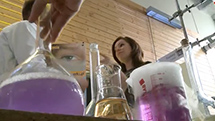
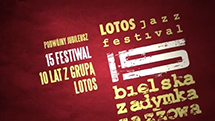
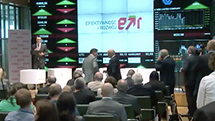






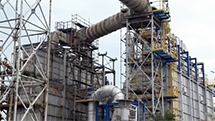
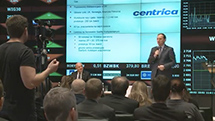
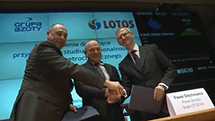
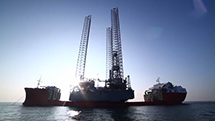
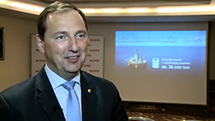
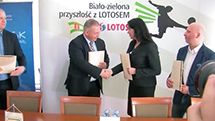

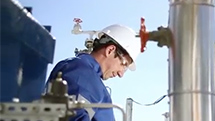

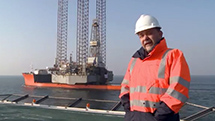
 E-mail
E-mail Facebook
Facebook Google+
Google+ Twitter
Twitter